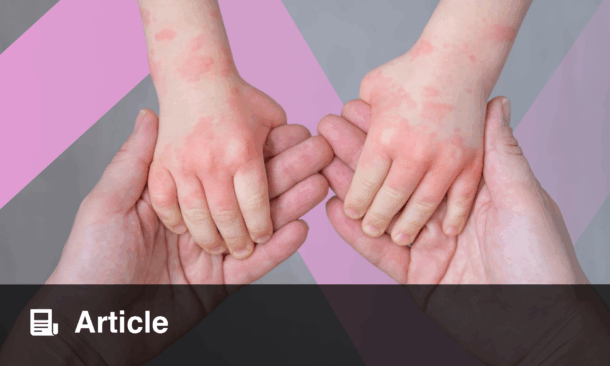ATOPIC dermatitis (AD) is a chronic, relapsing skin condition affecting a significant portion of the population, including around 10 to 15 per cent of children and 7 to 10 per cent of adults in the United States. The impact of AD extends far beyond the physical symptoms, imposing a heavy psychosocial burden on patients and their caregivers. This burden is often driven by intense itching, sleep disturbances, unpredictable flare-ups, lifestyle limitations, and the social stigma attached to visible skin conditions. Furthermore, treatments for AD can be time-consuming and stressful, potentially adding to patients’ anxiety and emotional distress.
Mental health issues such as anxiety and depression are common comorbidities in people with AD and substantially contribute to the overall reduction in quality of life. Unfortunately, these mental health concerns frequently remain unaddressed in clinical settings. Healthcare professionals do not consistently inquire about symptoms of anxiety or depression during consultations, and patients may feel reluctant to raise these issues due to the stigma surrounding mental health care. Additionally, clinicians may lack the training or resources to effectively support patients struggling with these psychological challenges.
Research highlights multiple mechanisms that may link AD with mental health problems, including poorly controlled disease, sleep disruption, stress-induced itching, inflammation, and maladaptive coping strategies. To improve patient outcomes, healthcare professionals are encouraged to initiate open discussions about mental health during medical visits, use validated screening tools to identify those at risk, and provide education and support tailored to the psychosocial needs of individuals with AD. Cognitive-behavioural therapies have shown promise in managing both the physical symptoms and psychological burden of AD. When appropriate, referrals to mental health specialists should be facilitated to ensure patients receive comprehensive care.
Optimising AD management, particularly by reducing itch and controlling flare-ups, is vital to lessen the mental health burden. Greater awareness among healthcare providers and a clear, compassionate approach to addressing anxiety and depression can help improve the overall wellbeing of patients living with atopic dermatitis.
Reference
LeBovidge JS et al. Depression and anxiety in patients with atopic dermatitis. Ann Allergy Asthma Immunol. 2025;134(5):506-15.








